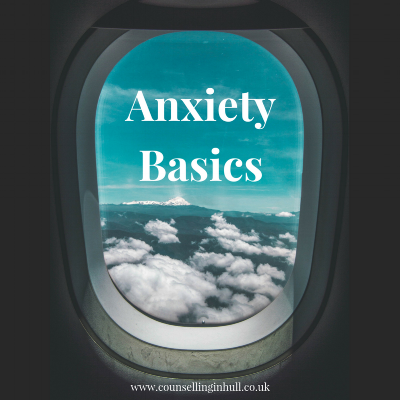Anxiety Basics
As a therapist, I surrounds myself in mental health and anxiety is one of the most familiar difficulties I hear about. I work with lots of clients that experience anxiety, I discuss anxiety on social media and I deliver talks about anxiety. I find that when people understand or have a way to view anxiety, something shifts. They become less anxious and how to help themselves and their children becomes clearer.
So here are some anxiety basics for you.
Survival
Whenever I start working in the area of anxiety, this is the first thing I cover: anxiety is a primitive emotional and physiological response to threat which has been imperative for our survival since the start of time. So when it comes to managing expectations related to anxiety, it isn't realistic to think anyone will live a life without it, but we can live with anxiety without it having an intrusive and oppressive impact on our lives.
Auto-Pilot
When we detect a real or perceived threat, our bodies have a strong physiological response that feels automatic and out of our control. Remembering that anxiety has been indicative for our survival, so to maximise our chances of survival, our body is flooded with Adrenalin and Cortisol in preparation for one of the following:
Sign Up To My Facebook Group For Parents & Carers
Fight - if our spontaneous assessment of the threat concludes that we can fight our way out of a threat, the Adrenalin and Cortisol assists the muscles in order to do this.
Flight - if we conclude fighting would negatively impact our survival, the Adrenalin and Cortisol helps us run away
Freeze - sometimes fighting or running is deemed futile, when this happens, our body freezes to avoid/hide from an attack (think of a small deer sat still in long grass, waiting for the predator to pass)
Flop - when all the above are not helpful or achievable, our body will flop which is an attempt to limit the physical damage our bodies would experience
Brain
Due the the processing of anxiety and fear, which happens at the lower part of the brain, other areas of functioning such as learning, regulating our emotions and behaviours, maintaining relationships and our ability to think/rationalise are effected, because these occur higher up in the brain. The huge processing energy at the bottom of the brain acts like a blockage which is why we see children in classrooms acting out, becoming irritable not reaching targets, and why we find it difficult to comprehend what people are saying to us and continue tasks.
Anxiety is 'normal' but if you are experiencing anxiety to levels which effect your day-to-day functioning, you can change this with some professional support. If you'd like to inquire about how I can help you with your anxiety, please contact me via email or telephone.
Are you looking for ways to support your children's anxiety? Read these day-to-day strategies.
Here are some other useful blogs about anxiety:
5 Things You Need To Do If You Suffer With Anxiety...
You must read this if you’re worried about your exam results…

